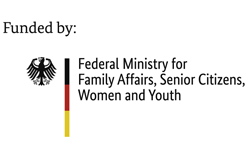Project
with a history
The SEEPRO-3 study presented here
is the fourth in a series of research projects based at the State
Institute of Early Childhood Research and Media Literacy (IFP) in
Munich and funded by the German Federal Ministry for Family and Youth
Affairs (Bundesministerium für Familie, Senioren, Frauen und
Jugend). The new SEEPRO-3 study¹ focuses on the 27 member
states of the European Union and six non-EU countries - a total of
33 countries. Reports on the early childhood workforce and the early
childhood education and care (ECEC) systems in Norway, Switzerland
and Serbia are presented for the first time in this context.
Starting in the mid-1990s, a time when new structures were emerging
to support employee mobility across Europe, each project has specifically
focused on the employees in Early Childhood Education and Care (ECEC)
settings - pedagogues, educators, teachers and their co-workers. In
Germany and across Europe, there has been a steadily growing interest
in the country-specific qualification requirements for staff working
in ECEC, the settings in which they work and governance structures
in the ECEC field. The four projects have progressively expanded in
terms of the number of participating countries and in terms of the
research questions for researchers and policy experts in the different
national contexts. From the outset, it was important to the project
team to embed professionalisation approaches in the context of the
respective system of early childhood education and care. All major
findings from these projects have been published in both English and
German.
The first study, published in 1997² , focused on the workforce
and ECEC systems of the 15 European Union countries of that time.
Alongside commissioned reports, key informants in the field were interviewed:
representatives of relevant ministries, researchers, teacher educators,
ECEC counsellors and professional development experts, representatives
of professional organisations and unions as well as staff working
in early childhood centres. This interview-based approach was continued
in the second study, named SEEPRO for the first time - an acronym
for "Systems of early childhood education and professionalisation
in Europe". Including the new central and eastern European member
states, the workforce in 27 countries was now in focus and the findings
published in book form in 2010³ . In 2015, a third study
was commissioned to meet the growing interest and to update and extend
the existing workforce profiles. National partners were university
researchers and policy experts. 30 country reports were published
for the first time on a specially designated website (www.seepro.eu)⁴
and made accessible, free of charge, to all interested readers across
Europe and beyond.
¹
Project duration: March 2021 to February 2024, ZMV I 7-2515081088
²
Oberhuemer and Ulich 1997
³ Oberhuemer and Schreyer 2010
⁴ Schreyer and Oberhuemer 2018
The
current SEEPRO-3 study
Throughout Europe, early childhood education and care systems are
subject to constant shifts, undergoing both expansion and consolidation.
Reform strategies and innovations characterise the situation in many
countries. The staff working in ECEC settings continue to be viewed
as the key contributing factor to the quality of daily interactions
with the children, in providing stimulating learning environments
and in supporting their wellbeing and learning processes. At the same
time, almost all countries report a shortage of staff, in some cases
severe. This has brought the qualification, competence and task profiles
of early childhood leaders, pedagogues and assistants - perhaps more
than ever before - to the forefront of professional policy interest
and makes it necessary to continuously update the available data.
This homepage now presents the results of the new and fourth project
- SEEPRO-3. For
each of the 33 countries two documents have been compiled.
An ECEC workforce profile (country report) gives an account
of the current status quo regarding the qualification requirements
for ECEC professionals, the composition of the workforce, the systems
of initial professional education and continuing professional development,
current reform initiatives and research projects and selected aspects
of the working conditions of staff in each of the 33 countries in
focus. In addition, current challenges facing the ECEC staffing situation
in the respective country are presented. The initial reports were
provided by mostly long-standing cooperation partners according to
a research
specification which they received for comment before compilation
of the data. The final versions are based on a long period of close
and continuous collaboration between the editors and the authors.
The reports vary in length, depending on the specific conditions in
the respective country.
A key contextual data synopsis (country-specific background
information) presents the main features of the ECEC system and also
relevant demographic data. These were compiled by the project team
and reviewed by our cooperation partners who often added supplementary
data.
All documents are presented in English and in German,
thus providing a resource for a wide audience across Europe and beyond:
early childhood teacher educators in higher and vocational education,
national and local government administrations, employers and service
providers in the ECEC field, researchers, early years staff and other
interested persons.
Acknowledgments
We would like to extend our sincere thanks to the following colleagues
for their support:
Martin Krause (State Institute for Early Childhood Research
and Media Literacy, IFP) for his competence in building up the SEEPRO
website;
Dr. Kirsten Hanssen (German Youth Institute, Munich) for giving
helpful suggestions when reviewing the two documents for Germany;
Emer. Prof. Dr. Eva Lloyd, OBE (University of East London)
for her suggestion when recruiting individual cooperation partners;
Emer. Prof. Peter Moss (University College London, Social Research
Institute, Thomas Coram Research Unit) for his continuing interest
and encouraging discussions about the progress of the SEEPRO work;
The responsible
specialists at the Federal Ministry for Family Affairs, Senior Citizens,
Women and Youth and the Federal Administration Office.
Last but not least, we would like to express our warm thanks to all
50 national partners in the 33 countries of this study for their
excellent cooperation - reaching back in some cases over 20 years
- in this joint European project.
Pamela
Oberhuemer, Inge Schreyer
Munich, February
2024
References:
Oberhuemer, P. and M. Ulich. 1997. Working with young children in
Europe.
London: Paul Chapman Publishing Ltd.
Oberhuemer, P., I. Schreyer, and M. J. Neuman. 2010. Professionals
in Early Education and Care Systems - European Profiles and Perspectives.
Opladen and Farmington Hills, MI: Barbara Budrich.
Oberhuemer, P. and I. Schreyer (eds.). 2018. Early Childhood Workforce
Profiles in 30 Countries with Key Contextual Data. Munich. www.seepro.eu/ISBN-publication.pdf












